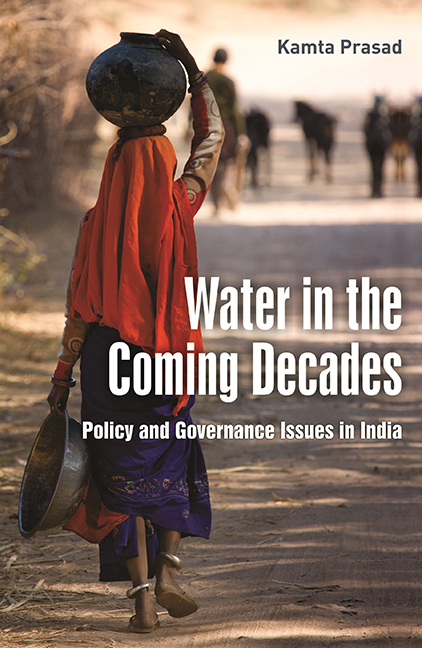Book contents
- Frontmatter
- Dedication
- Contents
- List of Tables
- List of Abbreviations
- Preface
- Acknowledgements
- Section I Overall Perspectives
- Section II Situational Analysis
- Section III Socio-economic, Institutional and Environmental Aspects
- Section IV Technological Options
- Section V Concluding Observations
- References
- Index
10 - Towards Participatory Irrigation Management for Canals
Published online by Cambridge University Press: 13 July 2022
- Frontmatter
- Dedication
- Contents
- List of Tables
- List of Abbreviations
- Preface
- Acknowledgements
- Section I Overall Perspectives
- Section II Situational Analysis
- Section III Socio-economic, Institutional and Environmental Aspects
- Section IV Technological Options
- Section V Concluding Observations
- References
- Index
Summary
The chapter provides a critical review of participatory irrigation management (PIM) in canal irrigation, which is regarded as an internationally acclaimed institutional set up for a more efficient irrigation system. It also examines the case for PIM, provides background information of its introduction in India along with the support measures offered by the government, explains the salient features of the laws enacted for this purpose, draws attention to its slow progress along with reasons for the same, throws light on some key aspects of PIM experience in India, including socio-economic impact, highlights conditions for its success and indicates some macro-implications.
Case of PIM
The vast canal network in India has traditionally been administered by the State Irrigation Departments, which directly deal with individual farmers. This puts tremendous pressure on the Departments in preparing the water distribution schedule for individual farmers. Faced with unpredictable water flows, supplies tend to be made arbitrarily or in a haphazard manner. Because of this, objectives of optimum utilization of the created irrigation potential, equitable distribution of water at the farm level and maximum increase in farm productivity are not achieved on a sustainable basis. There is neither any practical effort on the part of farmers to maintain field channels constructed by the government, nor the sense of economic use of water generated among them. Moreover, larger benefits are often derived by those having privileged position in the community or having their land located in an outlet command or in head reaches of a canal system at the cost of socially or economically weaker sections and tail-enders.
Hence, policy makers and thinkers started realizing that the complex tasks involved in water management could not be performed efficiently by a centralized bureaucracy and that it would be better to transfer much of the power and responsibilities to the actual users of water. It was hoped that farmers’ involvement would reduce water distribution cost and ensure proper maintenance of irrigation system at the micro-level. The understanding that they own the system would motivate farmers towards better use of water. They would pay irrigation charges at the main outlet level on volumetric basis which would be less than crop-wise irrigation charges on acreage basis.
- Type
- Chapter
- Information
- Publisher: Foundation BooksPrint publication year: 2014

